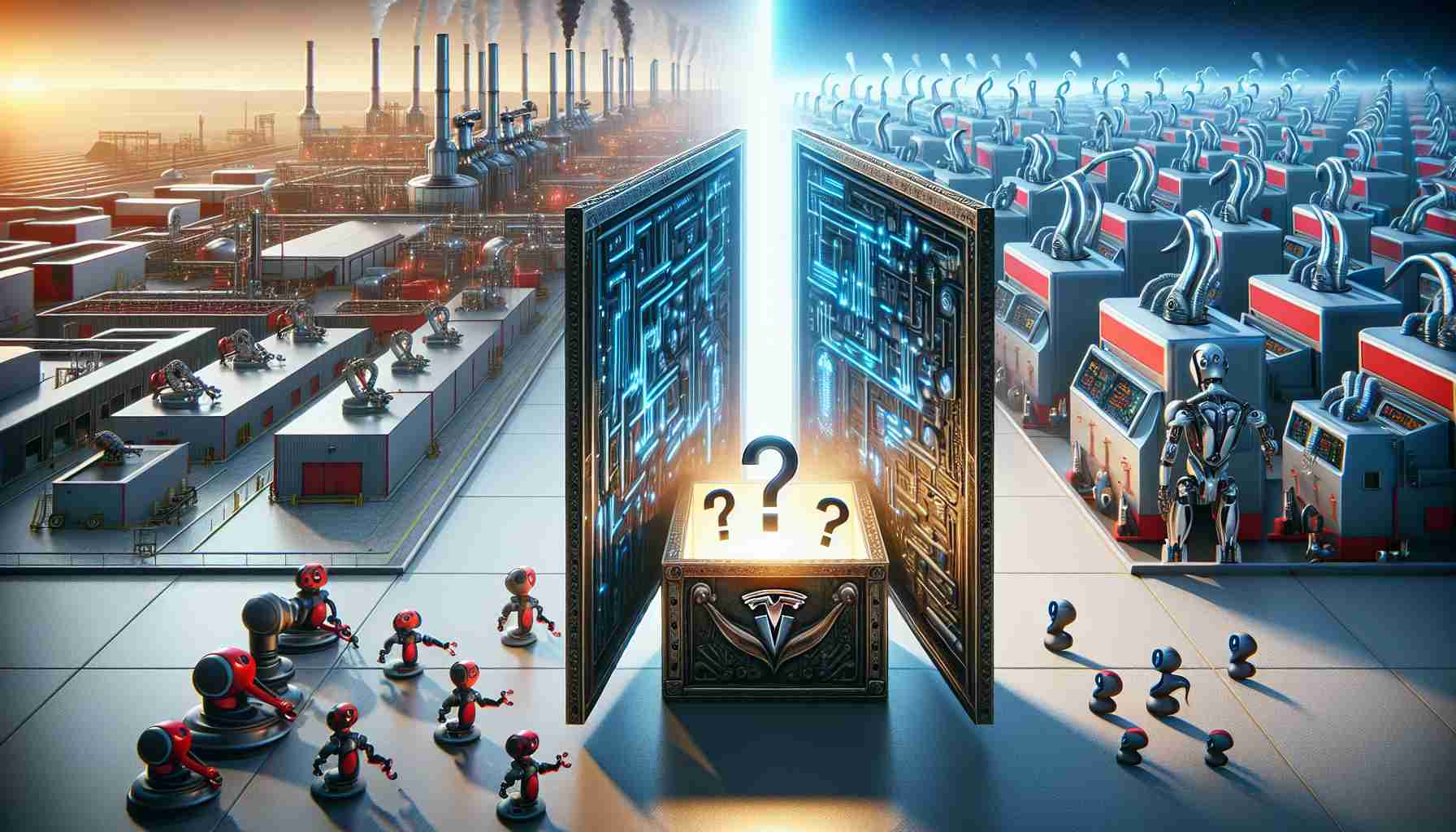- Optimus, Tesla’s humanoid robot, is unveiled as a revolutionary tool aimed at enhancing efficiency and safety in industries like manufacturing, logistics, and healthcare.
- The robot is designed for mass production and affordability, targeting a vast robotics market projected to reach $100 billion by 2030.
- Optimus features advanced AI for tasks ranging from heavy lifting to intricate assembly, contributing to significant productivity gains.
- Ethical considerations surrounding job displacement and privacy arise as Optimus enters the market, prompting calls for robust AI guidelines.
- Tesla commits to working with regulators to address ethical challenges, focusing on privacy, labor laws, and responsible AI use.
In a dramatic reveal at Tesla’s AI Day, the tech world buzzed with the unveiling of Optimus, a humanoid robot with the potential to transform the industrial landscape. Engineered with Tesla’s state-of-the-art AI, Optimus is crafted for mass production and priced for accessibility, not just aspiration. With uncanny human-like agility, this robotic marvel promises to amplify efficiency and safety across industries such as manufacturing, logistics, and healthcare.
A Technological Breakthrough
Imagine a robot that maneuvers with the grace of a human, executing precise tasks from hefty lifting to detailed assembly operations. Optimus isn’t just a concept; it’s a game-changer poised to tackle dangerous and labor-intensive jobs, setting the stage for a leap in productivity and operational safety.
Economic Potential
As Tesla targets a sizable slice of a projected $100 billion robotics market by 2030, Optimus is strategically positioned to take the lead. While specific pricing remains under wraps, its design reflects a deliberate push to dominate by making AI technology widely accessible.
Navigating Ethical Challenges
Yet, as with all disruptive innovations, Optimus enters a complex arena where technological advancement meets ethical questioning. The introduction of such robots brings heated discussions about job displacement and potential socioeconomic divides. The robot’s integration into everyday life raises concerns about privacy and the necessity for robust ethical guidelines to govern AI use.
Guiding this new frontier, Tesla champions a proactive approach, pledging to work with regulators to ensure that Optimus operates within ethical boundaries. By focusing on privacy, labor laws, and ethical AI integration, Tesla is committed to leading responsibly into this brave new world.
As Optimus begins its journey, it invites us to ponder: Will it reshape our future or challenge us to rectify emerging dilemmas?
Unlocking the Future: How Tesla’s Optimus Robot is Revolutionizing Industries
How could Optimus transform key industries like manufacturing, logistics, and healthcare?
Optimus is set to revolutionize industries by enhancing efficiency and safety:
– Manufacturing: Optimus can work tirelessly on the production line, handling repetitive and physically demanding tasks with precision, potentially reducing human error and increasing productivity.
– Logistics: Capable of managing and organizing inventory, Optimus could streamline supply chain operations, leading to faster delivery times and reduced operational costs.
– Healthcare: In healthcare settings, Optimus could assist with patient care, manage medical records, and even perform non-invasive procedures, allowing healthcare professionals to focus more on patient interaction.
What are the security aspects and potential limitations of deploying Optimus at scale?
Deploying Optimus at scale introduces both benefits and challenges:
– Security Aspects: Tesla must ensure robust cybersecurity measures to prevent unauthorized access and data breaches as Optimus could work with sensitive information, especially in healthcare.
– Limitations: While designed for versatility, Optimus may encounter limitations in highly specialized tasks that require nuanced human interaction or decision-making. Continuous updates and improvements to AI protocols will be necessary to expand its capabilities.
What are the ethical dilemmas surrounding the integration of Optimus into the workforce, and how is Tesla addressing these concerns?
The integration of Optimus presents several ethical dilemmas, primarily around job displacement and privacy. Tesla is addressing these concerns by:
– Proactively engaging with regulators and stakeholders to establish ethical guidelines for AI use.
– Advocating for policies that promote upskilling and reskilling programs to help workers adapt to new roles in an AI-driven economy.
– Committing to transparency and user data protection, ensuring that Optimus operates within strict privacy parameters.
For further information, explore Tesla’s official website: link name.














